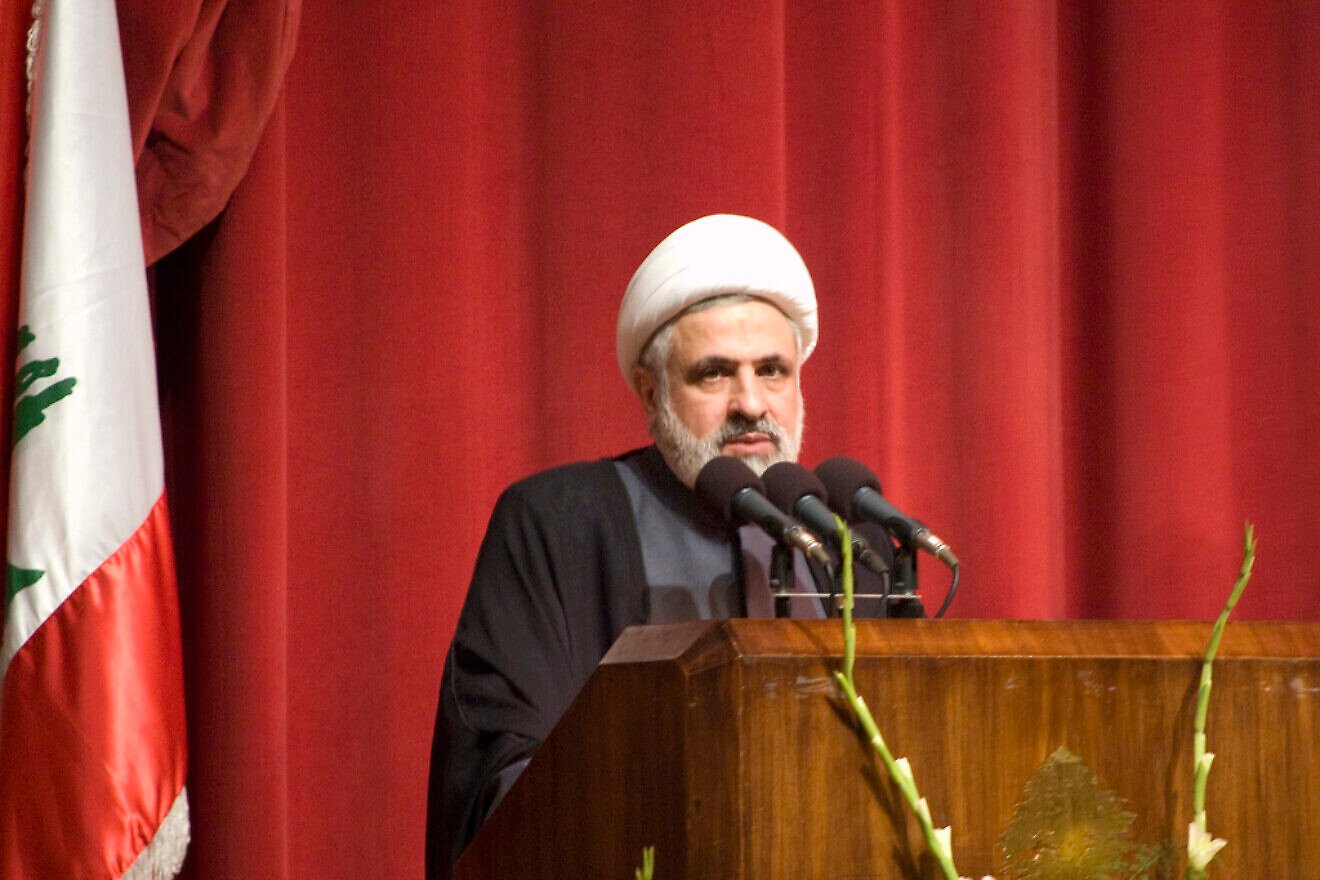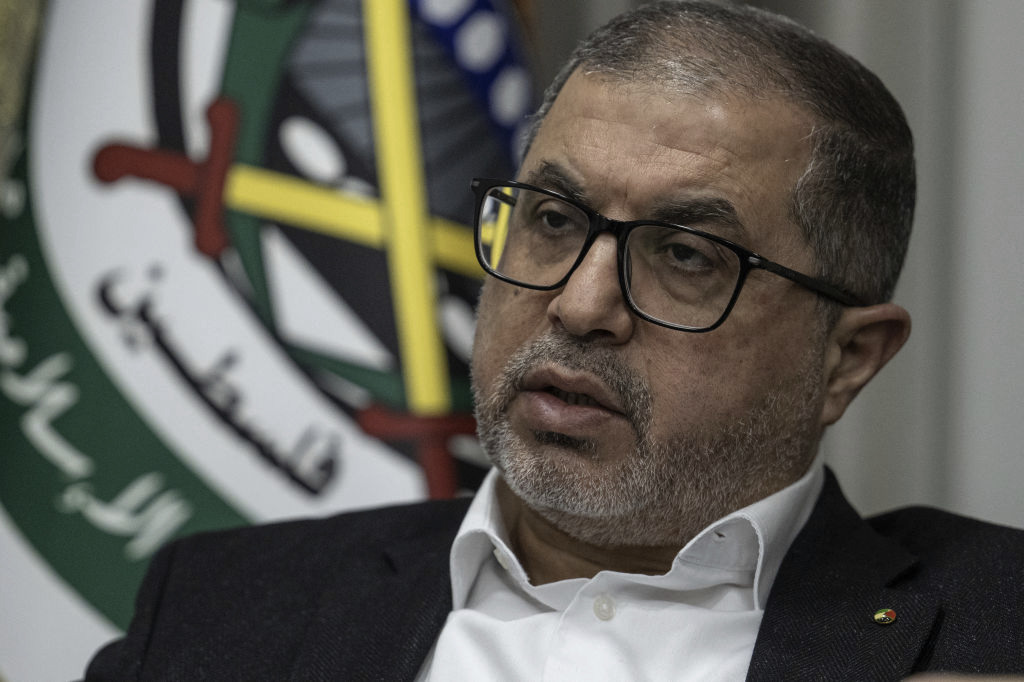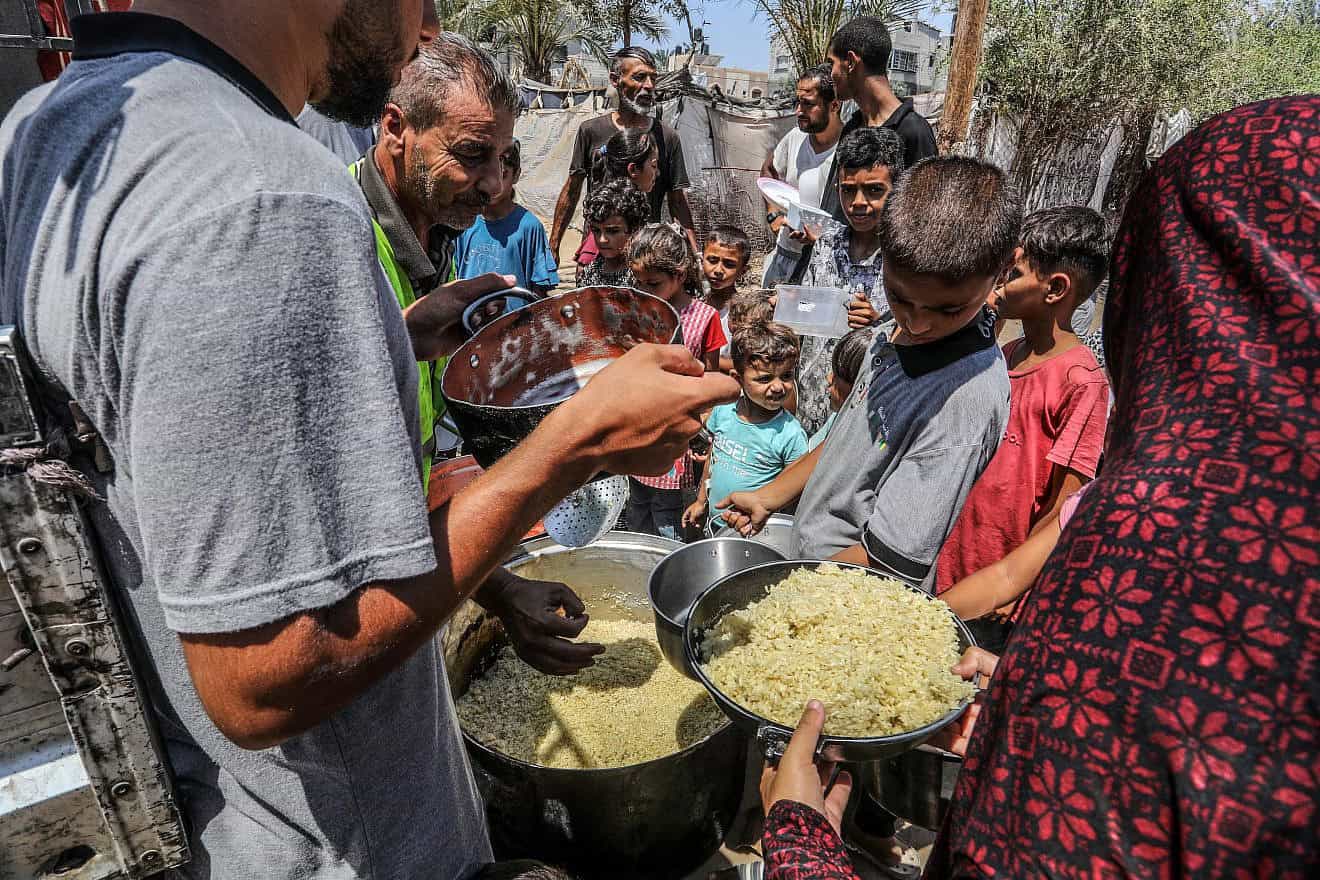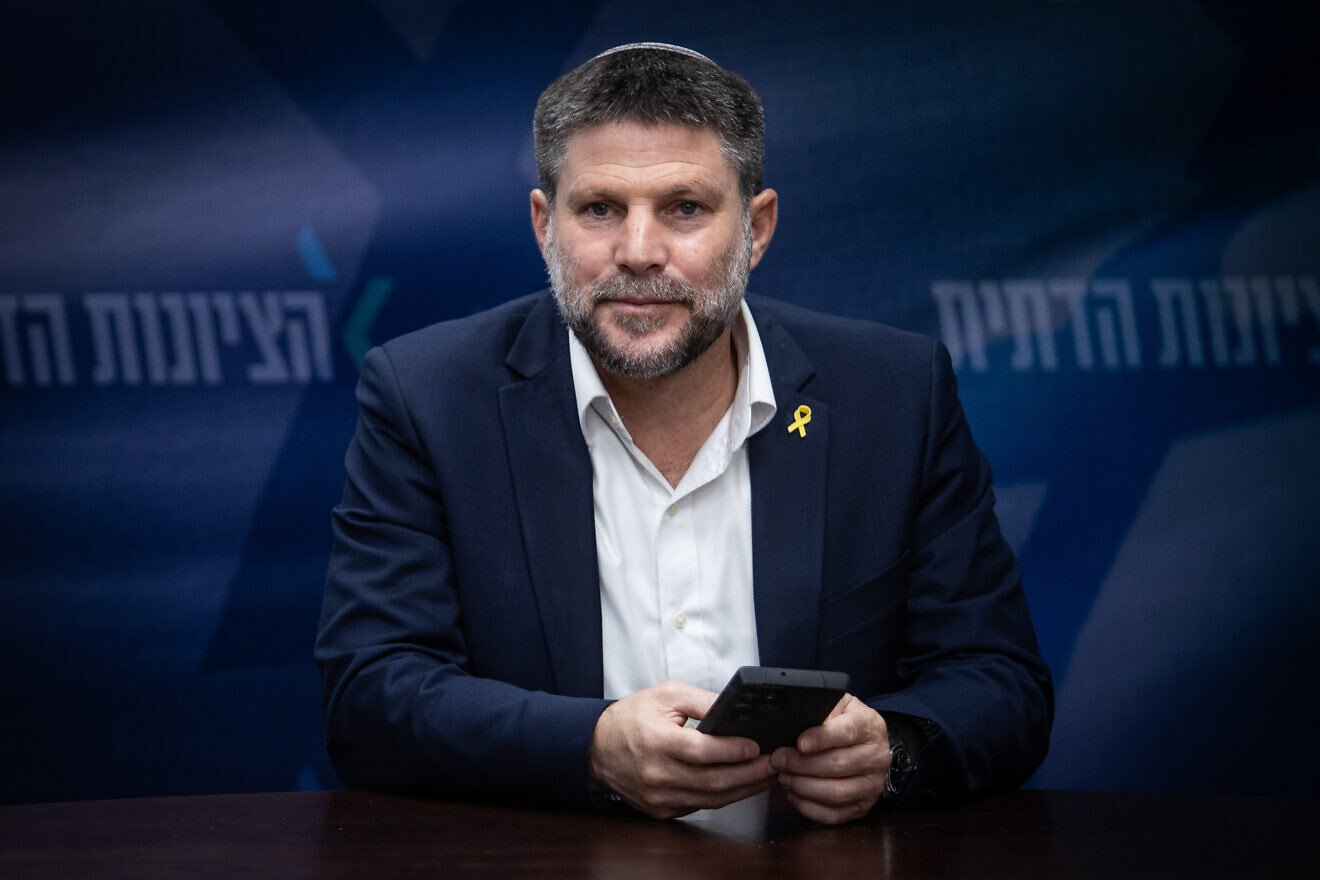by JNS Staff
“Calling yourself a political party does not provide you refuge from being a murderer," Ambassador to the U.S. Yechiel Leiter said.
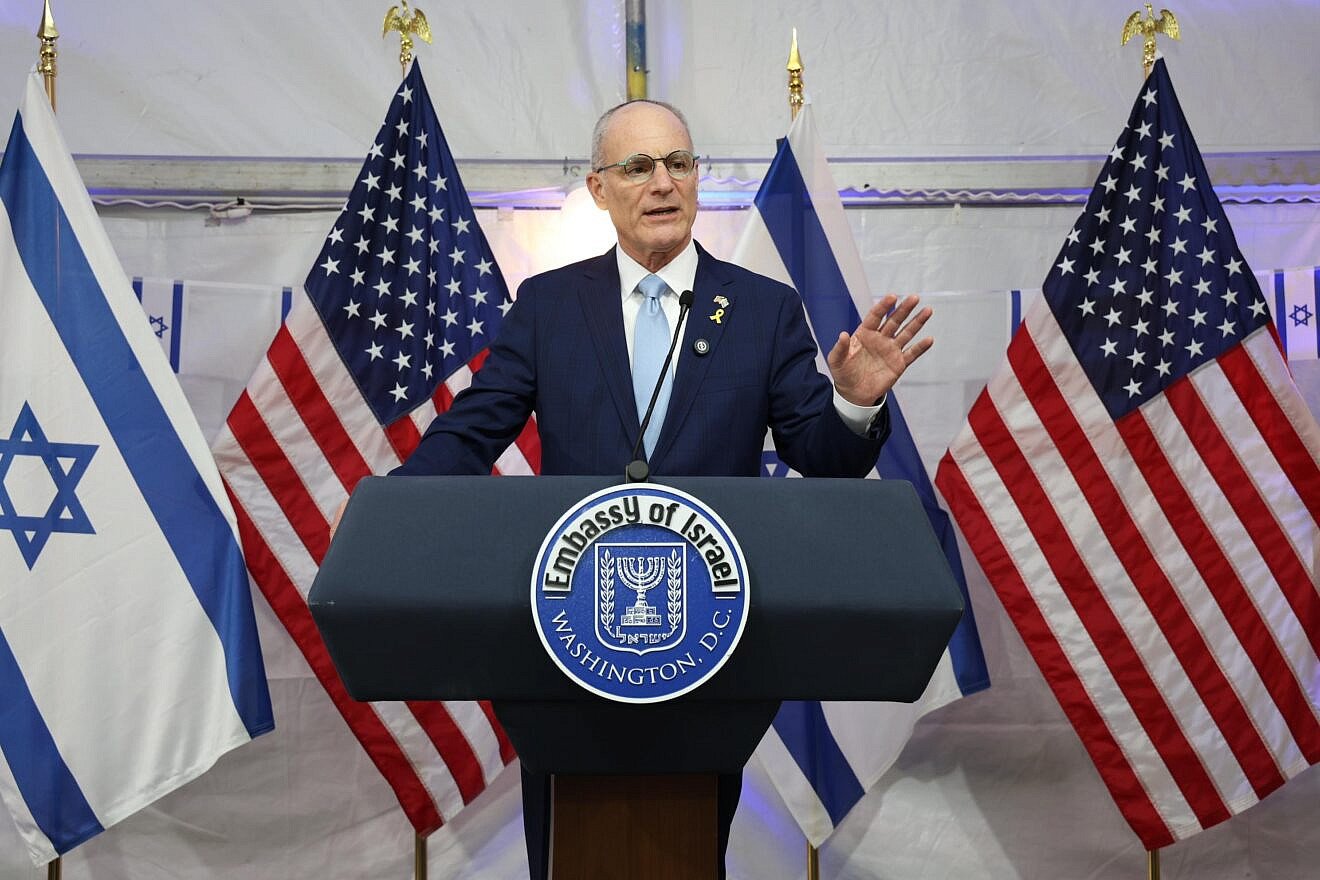
“Hamas is first and foremost a group of murderers,” Israeli Ambassador to the United States Yechiel Leiter said on Saturday, speaking in response to international figures’ recent characterization of the terrorist group as a political party.
Francesca Albanese, the U.N. special rapporteur for Palestinian rights, and Ian Williams, president of the Foreign Press Association New York, “both excused Hamas” by considering it a legitimate political party, Leiter said in a recorded message posted on X.
Leiter continued his remarks on Saturday, saying, “Calling yourself a political party does not provide you refuge from being a murderer. Hamas is a political party, yes, but in its charter—its political charter—it clearly calls for the annihilation of Israel and the murder of Jews.
“The fact that [Hamas] couches themselves in terms of politics doesn’t excuse them, doesn’t let them off the hook, it means that they must be defeated, like their predecessors: like the Khmer Rouge in Cambodia, like Stalin in the Soviet Union, like the Arrow Cross in Hungary, like the Ustaše in Croatia,” the ambassador said.
“These are all political parties, but they’re murderous political parties, and they have to be defeated—like the Nazis had to be defeated. They, too, Francesca, were elected by the people,” the Israeli official said.
In footage shared by UN Watch on Friday, Albanese, speaking to an audience, appeared to ridicule the framing of Hamas as an evil organization. It is unclear when the comments were made.
“But Hamas, Hamas, Hamas …, I don’t think people have any idea what Hamas is,” the U.N. official said in Italian. “Hamas is a political force that won the 2005 [actually 2006—JNS] elections—whether we like it or not. Hamas built schools, public facilities, hospitals. It was simply the authority, the de facto authority,” she said.
Francesca Albanese: “People continue to say ‘But Hamas, Hamas, Hamas’... I don't think people have any idea what Hamas is. Hamas is a political force that won the 2005 elections—whether we like it or not. Hamas built schools, public facilities, hospitals. It was simply the… pic.twitter.com/F9sGqAJPY2
— UN Watch (@UNWatch) August 15, 2025
Leiter lambasted the suggestion that Hamas’s electoral victory can trump morality.
“The United States was actually founded [on the basis of morality]. There are truths that are self-evident, that are undeniable, that are irreversible. And one of them is that you can’t advance your political platform through murder, through rape, as Hamas attempts to do in implementing the first paragraph of their charter to annihilate Israel and to kill Jews,” Leiter stressed.
“Israel’s war against Hamas is not only to defend its people and its nation and its borders. It is also a war against the moral depravity that is being advanced by people like Francesca Albanese and Ian Williams. It’s to remind the world that there are values that no election and no political platform can possibly justify,” the Israeli ambassador said.
.@FranceskAlbs and Ian Williams @FPANewYork, if you consider a terrorist organization to be a legitimate political entity, that reflects either deliberate bias or a serious lack of judgment. Such a view is indefensible. pic.twitter.com/CkOz5MLGr3
— Ambassador Yechiel (Michael) Leiter (@yechielleiter) August 15, 2025
On Tuesday, Williams spoke to CNN about slain Gazan Anas al-Sharif, whom Israel said was a Hamas operative who posed as a journalist.
“Frankly, I don’t care whether al-Sharif was in Hamas or not. We don’t kill journalists for being Republicans or Democrats or, in Britain, Labour Party,” Williams said.
The Foreign Press Association president moreover stated that Palestinian reporters should be trusted while the Israeli government “has to be taken with a hundred grains of salt, because what they say has no relation to reality.”
Hamas is a political organization as well as a terrorist organization, he continued.
When asked to clarify what he meant by “not caring” whether al-Sharif was in Hamas or not, Williams replied that he does not believe Israel, which “lied and lied and lied.” Al-Sharif has been working “24 hours” as a journalist and thus “did not have time to work in a cell on the side.”
Williams then complained that Israel has not permitted foreign reporters to enter Gaza, adding that when it does, “I would make sure that they compose their wills before they go, because the [Israel Defense Forces] has no compunction.”
WATCH | Foreign Press Association president Ian Williams rejected CNN’s framing that echoed Israeli military talking points to justify murdering Anas Al-Sharif.
— Drop Site (@DropSiteNews) August 11, 2025
“Frankly, I don’t care whether Al-Sharif was in Hamas or not. We don’t kill journalists for being Republicans or… pic.twitter.com/4252SKBld0
JNS Staff
Source: https://www.jns.org/israeli-envoy-to-uns-albanese-fpas-williams-murder-rape-make-hamas-a-terrorist-group/
